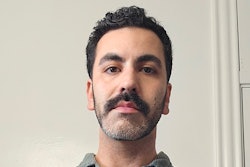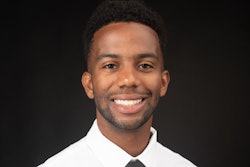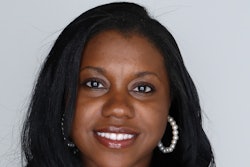
“It also encompasses big things like leadership, talent management and coaching, and I lean more toward that,” says Mendoza, a third-year Ph.D. student in industrial organizational psychology at the Illinois Institute of Technology (IIT).
As an undergraduate, Mendoza studied psychology and Spanish with a minor in health and society. She understood that she needed to attend graduate school to pursue a career in psychology. After discussing with an advisor her work experiences and things she had noticed in the workplace, that advisor directed her toward industrial organizational psychology.
After being accepted to IIT, Mendoza asked to be put in touch with current students or alumni who are Latina. “I wanted to know what this experience in graduate school is going to be like from someone with a similar background,” says Mendoza, who is first gen. “[An advisor] put me in touch with two very lovely individuals who spoke to me about their experiences, where they are now, and how the program helped shape them.”
As she began her coursework, Mendoza paid close attention to what courses and course content excited her and sparked her interests. “A lot of that had to do with leadership and people’s perceptions of leaders, leadership development, and leadership emergence,” she says.
When she began to wonder if she’d overshot taking on a Ph.D. program, a graduate assistant position opened at IIT. Previously, she had worked outside jobs to support herself. Now, Mendoza works with approximately 200 undergraduate students who are part of a leadership program, developing content such as educational seminars and programming for them as well as assisting them in scheduling and budgeting for events and activities. At times, this includes having conversations with students about their academic standing and progress. She also serves as a liaison between the undergraduate scholarship organizations, one of which is focused on first-generation college students, and upper leadership.
Being a first-generation student, Mendoza acknowledges it took some time to gain the confidence to know she belongs in a doctoral program. “I would like to eventually help other individuals to develop that confidence and those skills, so they can be in the same position I’m very fortunate to be in,” she says.
Tanisha Earwin, associate director of leadership programs at IIT, praises Mendoza’s work ethic, commitment to the students and ability to overcome any obstacles that come in her path, including, at times, racism and sexism. In her research, Mendoza is willing to explore topics that are often overlooked or underappreciated, Earwin says. This reflects the advice the alumni gave her, which was not to be a people pleaser and stand firm in her convictions.
“[They told me], if you want to take your research in a certain direction and you have support for that in terms of data and previous research, you need to be able to push for that,” Mendoza says. She is currently completing her master’s thesis, which examines perceptions of CEOs in STEM fields.
“[There is] potentially some negative behaviors towards diversity, equity, and inclusion,” she explains. “I want to understand if potentially this has to do with perceptions of the majority individuals in that field. There is a general lack of understanding of how people perceive minority women in leadership positions.”
Mendoza’s goal after completing her doctorate is to work in leadership development in the business or corporate world. She envisions helping select leaders for leadership positions as well as developing leaders for positions, such as senior management, CEOs, and the C Suite. This development would help these individuals be better leaders that oversee healthier and more productive work environments.
Another goal for the future is to use some of her leadership development skills to help nonprofit organizations — “ultimately, down the line when I have a little bit more experience, doing more leadership coaching and coaching leaders through some of their issues that they’re facing,” she says.





















